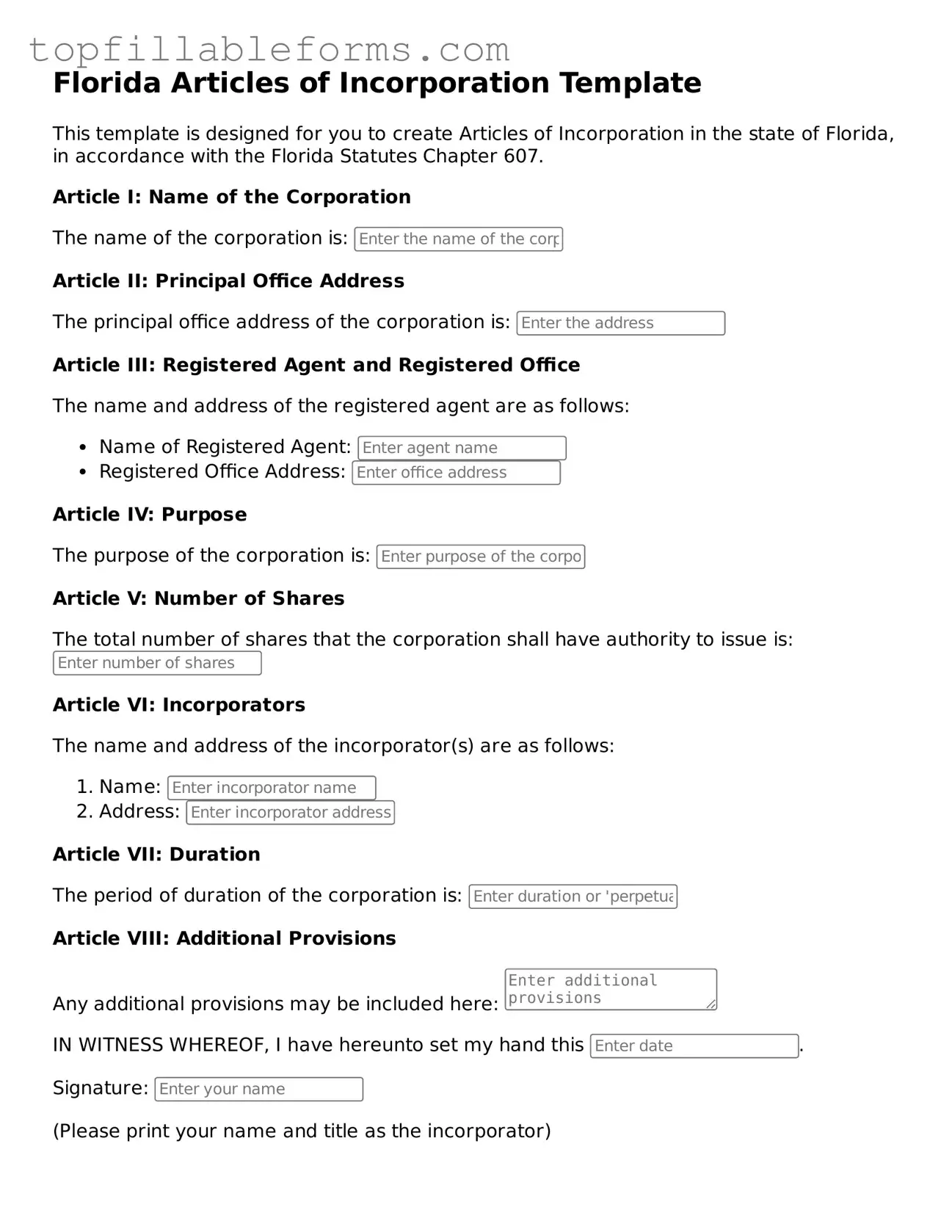Attorney-Verified Articles of Incorporation Template for Florida
The Florida Articles of Incorporation form is a crucial document used to establish a corporation in the state of Florida. This form outlines essential details about the corporation, including its name, purpose, and structure. Completing this form correctly is vital for ensuring legal recognition and compliance with state regulations.
Open Articles of Incorporation Editor Here

Attorney-Verified Articles of Incorporation Template for Florida
Open Articles of Incorporation Editor Here
Finish the form now and be done
Finish your Articles of Incorporation online by editing, saving, and downloading fast.
Open Articles of Incorporation Editor Here
or
▼ PDF File
